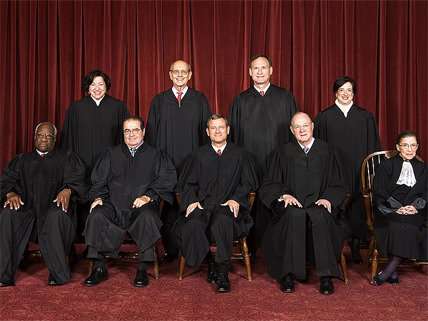Damon Root: Supreme Court To Rule on Cell Phone Privacy

The Fourth Amendment protects our "persons, houses, papers, and effects, against unreasonable searches and seizures." That includes the cell phones in our pockets, and the many private messages, photos, videos, and GPS location data those devices contain. But what happens if we get arrested for a minor (or major) infraction? Do the police now have the lawful right to search our cell phones for incriminating material without a warrant? Or does the Constitution still act as a shield?
The U.S. Supreme Court will address those questions next month when it considers a pair of cases testing the reach of the Fourth Amendment in the age of the smartphone. As Senior Editor Damon Root explains, the Court's response has the potential to impact the lives of countless of Americans in their dealings with the police.


Show Comments (0)